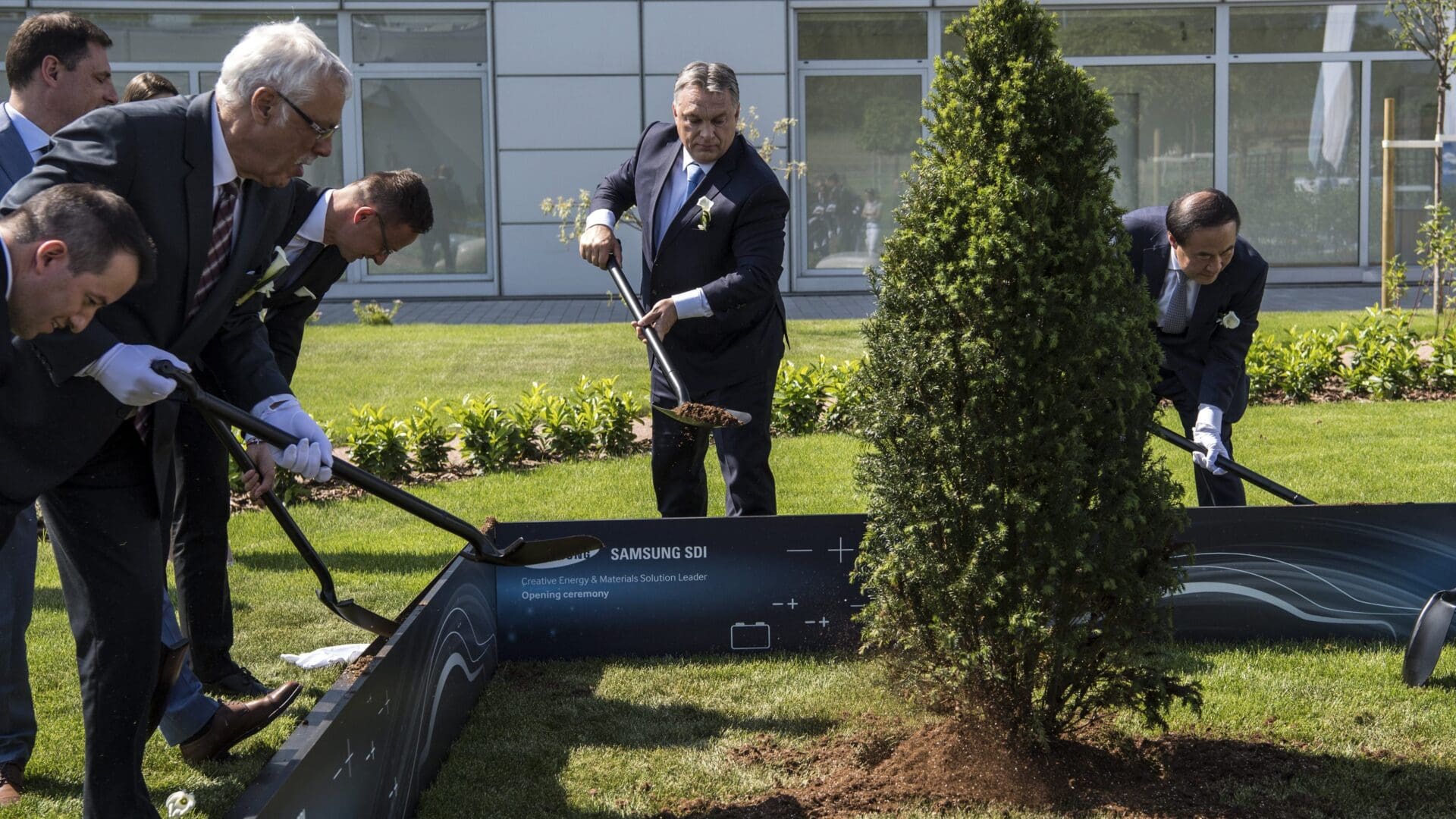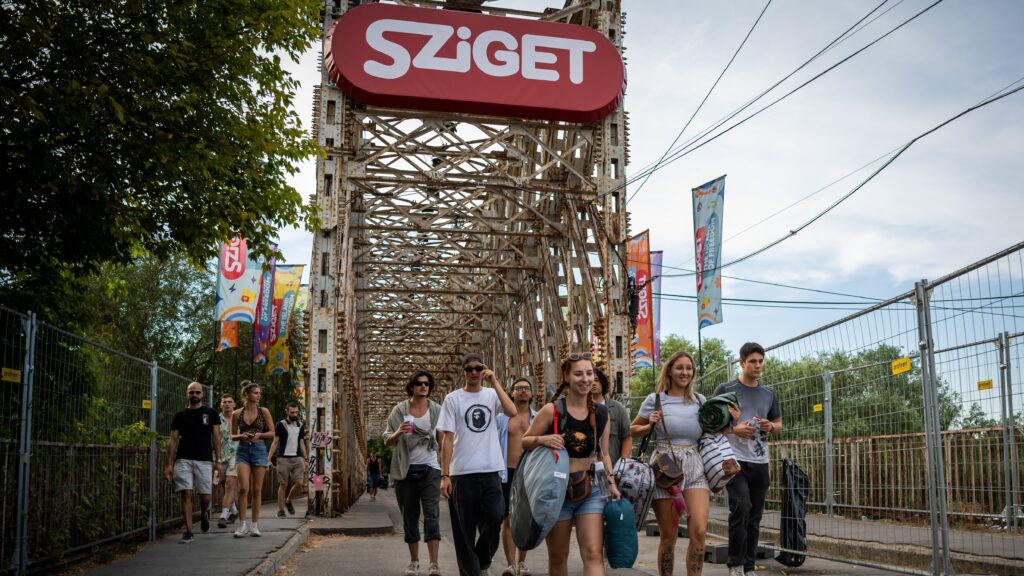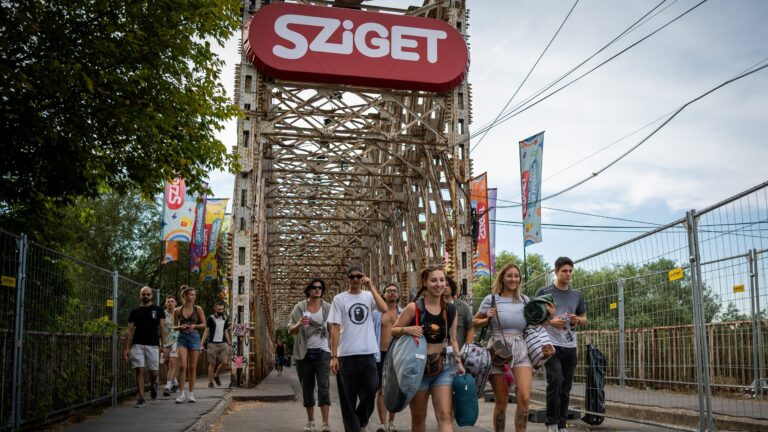Over the past couples of years, the flow of foreign direct investment (FDI) into Hungary reached new records. The investments were related to a wide range of areas—from infrastructure and city development to car production and battery manufacturing.
According to research conducted by the Hungarian Investment Promotion Agency (HIPA), the year of 2023 marked a significant milestone with regards to the flow of foreign direct investment into Hungary. The amount invested in the country by foreign stakeholders exceeded 13 billion EUR thanks to 209 projects, which surpassed the previous all-time high of 6.5 billion EUR in 2022. These investments happened not only thanks to European, but also Asian investors, which reflects on Hungary’s strategy to try and diversify its economic connections. Taking a closer look at these investments it becomes clear that they have brought about fruitful cooperation in multiple spheres, facilitating international connections, creating about 19,000 new jobs, developing infrastructure and improving the quality of life in Hungary. Most crucially, many of the recent investments also contribute to enhancing Hungary’s competitiveness and green transition.
Urban Development and Infrastructure
Partially due to the closeness of the municipal elections public interest in urban development, interest in investments related to urban planning intensified. As Hungarian Conservative has previously reported, the idea of reinvigorating the area of a formerly neglected area of Budapest, Rákosrendező. A formerly busy railway station, it fell into decay owing to the fact that the majority of the train traffic has been relocated. According to plans, Eagle Hills, a real estate developer from the United Arab Emirates, will execute a project that would turn the wasteland adjacent to the Rákosrendező into a modern city quarter.
It is hoped that the development would breathe new life into the neighbourhood,
with the total amount of investments on the investor’s side reaching 5 billion EUR.
Another area of growth in investments is transport infrastructure. As opposed to rumours about alleged delays, it has now been revealed that the construction of the Hungarian section of the Belgrade–Budapest fast-speed railway will soon come to the finish line. In his recent interview with the Chinese Global Television Network (CGTN), Serbian President Aleksandar Vučić shared that if everything goes as planned, the Serbian side is going to complete the construction of the over 180-kilometre Belgrade–Szabadka (Subotica) railway line by the end of 2024. He also expressed hopes that Hungary will finish its segment of the line stretching from Szabadka to Budapest by late 2024–early 2025, with the prospects of later further expanding the line, connecting Belgrade and Vienna through the Hungarian capital. Before the interview, it was believed that Belgrade and Budapest will be connected by railroad no earlier than the summer of 2026, and hence the project, which is largely financed by Chinese investors, is overdue. The promising words of the Serbian President dispelled a long-standing misconception and confirmed that foreign investments into Hungary—and Serbia, for that matter—are bringing fruitful results.
Batteries and Electric Vehicles
About 5 per cent of the Hungarian GDP is generated by the auto industry, therefore, initially, the EU’s decision to ban the sale of all new combustion-engine cars in 2035 was met with resistance in Hungary. Due to the ban, it is expected that from 2035 on practically only electric vehicles will be allowed to be sold in the European single market, which could have left the Hungarian economy that was dependent on the old technology vulnerable. Fortunately, however, Hungary showed a remarkable ability to adapt to the changing circumstances. In the past two years since the ban was proposed electric battery manufacturers have been engaged, which helps facilitate the green transition of the Hungarian car industry.
Hungary is already fourth globally in terms of the size of battery production,
and investments into this field are exponentially growing. Since 2017 almost 40 investments were made in Hungary related to electric battery production.
Of the most successful battery-related investments the ones in Debrecen stand out. If the Eastern Hungarian city of Debrecen continues to churn out battery and top-notch green technologies at the same pace as it does it now, it alone will rival and outpace all European countries, with the obvious exception of the long-standing European industry locomotive, Germany. As Hungarian Conservative has previously noted, the city of Debrecen has won some of the biggest investment packages the country has gained in 2021. Since then, Debrecen and the entire Hajdú-Bihar County has been selected as the seats for both Chinese and South Korean green investments. South Korean manufacturer of cathode materials for lithium batteries, EcoPro BM has since announced that it is going to build its first factory in Europe there (with a 700 millilon EUR investment), and the Chinese battery company, Contemporary Amperex Technology Co. Limited (CATL), will also take part in Debrecen’s battery manufacturing success. Other noteworthy examples of recent investments into the Hungarian battery industry include Samsung SDI in Göd, SK in Iváncsa, as well as BYD in Fót.
Electric batteries and vehicle production go hand in hand. Clearly, it is beneficial for automakers to set up or modernize their combustion engine production lines close to battery producers, so the needed car parts can arrive at their factories in a timely and cost-effective manner. It was no surprise that before CATL announced its record high investment into Debrecen the German premium auto maker,
BMW also released plans to build a factory in the same city.
As part of BMW’s expansion 320,000 square metres of solar panels will be installed, which is the largest investment into photovoltaic systems in the history of Hungary. The Southern city of Szeged was not less fortunate in the past years. A couple of months ago the Chinese auto giant, BYD, the largest electric car maker in the world, announced that it has not only registered its Hungarian subsidiary in the city but a new facility is scheduled to begin production next year. BYD is currently at the beginning of the process of setting up its 300-hectare industrial park, and is expected to create thousands of jobs.








